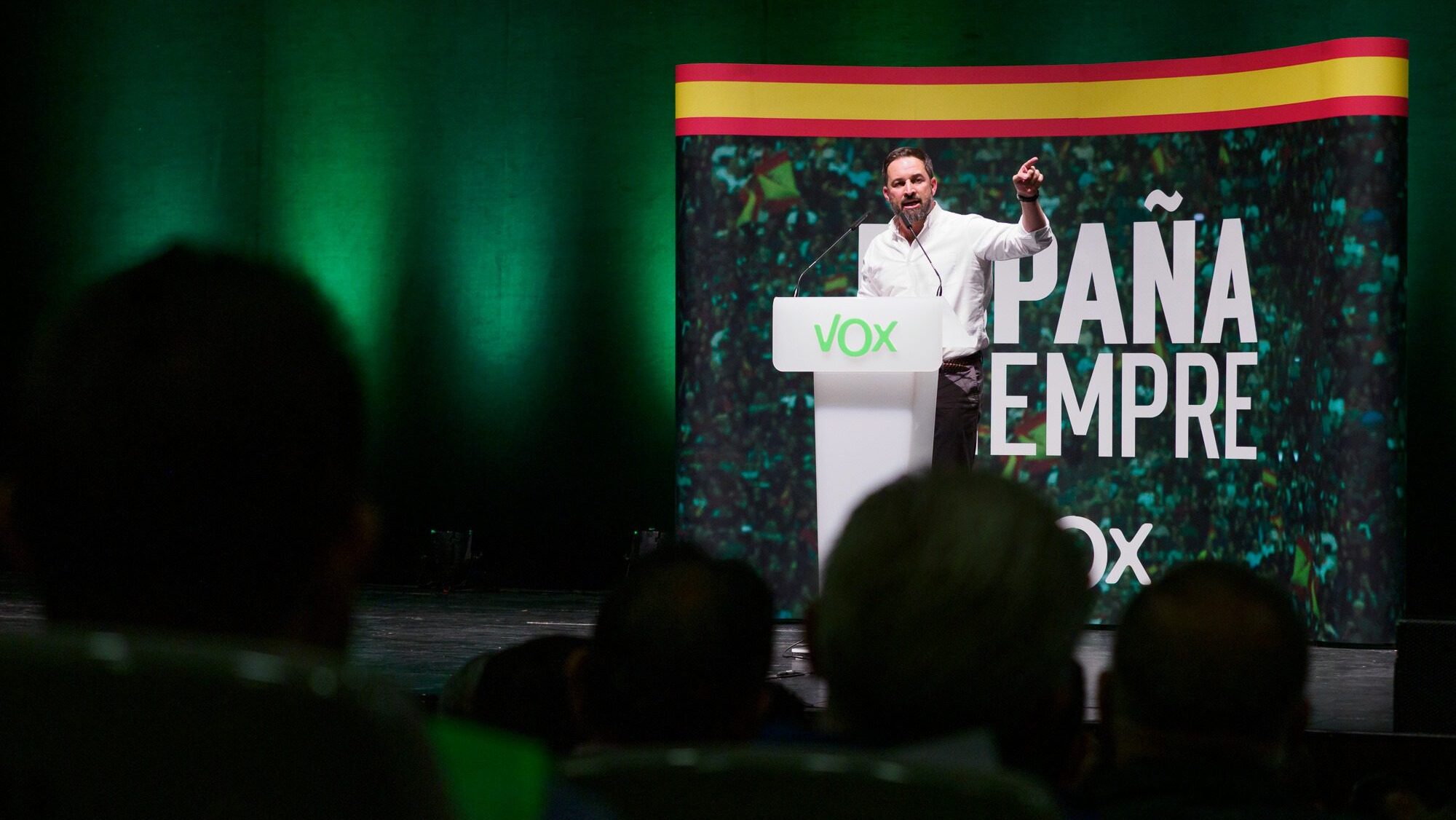
VOX leader Santiago Abascal.
Photo: Santiago Abascal on Facebook, 21 October 2019
Spain’s national conservative VOX (Patriots for Europe) urged the largest group in the EU Parliament, the European People’s Party (EPP) to reject the country’s socialist vice presidential candidate for the EU Commission, Teresa Ribera, who’s being held politically responsible for the devastating floods in Valencia that claimed over 220 live so far.
“If [Ribera] is elected, [the EPP] will be irrelevant,” warned VOX spokesman José Antonio Fúster on Monday, November 18th, at a press conference at the party’s headquarters in Madrid.”
The comment came after the Spanish Partido Popular (PP), EPP’s second most influential member party, announced that it would reject Ribera’s nomination regardless of how others in the group might vote or what the social democrat S&D group might put on the negotiation table.
The PP went as far as to publicly demand socialist Prime Minister Pedro Sánchez to formally withdraw Ribera’s nomination and replace her with someone worthy of the Spanish people’s trust.
The national conservatives, however, fear that the PP’s strong words were only theatrics meant for the domestic audience, and that there’s no real internal pressure within the EPP aimed at rejecting Ribera by the entire group. Uniting EPP against the commissioner-designate would be the only way to prevent her from becoming arguably the most powerful member of the new Commission, second only to President-elect Ursula von der Leyen.
“If the Spanish PP votes against the appointment of Teresa Ribera but the [EPP] maintains the appointment, we will say that the Spanish PP is making a theater, a scam,” Fuster added, echoing VOX leader Santiago Abascal. “For us, the political games are over.”
VOX is the third largest party in Spain, and Abascal was recently elected President of the Patriots.eu party, the political organization behind the Patriots for Europe (PfE) parliamentary group that’s also home to, among others, Hungary’s Fidesz, France’s National Rally (RN), the Italian Lega, and the Dutch Freedom Party (PVV).
📺 @Santi_ABASCAL en @periodistadigit:
— VOX 🇪🇸 (@vox_es) November 14, 2024
"El PP demostrará ahora, con el nombramiento de Teresa Ribera si es capaz de formar parte de la oposición.
Si el PP español vota en contra del nombramiento de Ribera pero el PP Europeo mantiene el nombramiento, diremos que el PP español… pic.twitter.com/lINfXXRHgC
The EPP leadership, however, stayed rather quiet during all this drama, keeping all options on the table throughout the negotiations. Its main goal is to get Italy’s conservative VP candidate Raffaele Fitto approved, which is seen as crucial toward maintaining a good relationship between von der Leyen and Italian PM Giorgia Meloni, whose good standing among Republicans in Washington just made her Brussels’ key ally for the next four years.
EPP could theoretically push Fitto through the finish line even without the S&D’s help, but relying on the three conservative groups and ditching its traditional left-wing allies risks upending the delicate balance of power in Brussels, maintained for decades through the two largest groups’ mainstream coalition.
That’s why the EPP is still counting on the initial agreement: they approve Ribera in exchange for the S&D’s support for Fitto, with the condition that Ribera forsakes her diplomatic immunity and resigns if she is put on trial for her role in the mismanagement of the flooding disaster.
The socialists, for their part, dramatically stormed out of the negotiations last week and vowed never to approve a top commission seat for a conservative. Yet, after the Spanish PP came out with a hard ‘no’ on Ribera during the weekend, the S&D suddenly changed its mind again on Monday, reverting to the initial deal to save Ribera’s position at the last minute.
The group coordinators are expected to decide on Wednesday, November 20th—a week after the parliamentary hearings ended and the political parties were supposed to finalize the first stage of the process.
This unprecedented deadlock shows the shifting balance of power in the Parliament after the EU elections. Mainstream parties, especially on the left wing, no longer hold as much power as they used to, and it’s much harder for them to hide the usual political games behind ‘values’ and ‘principles.’
